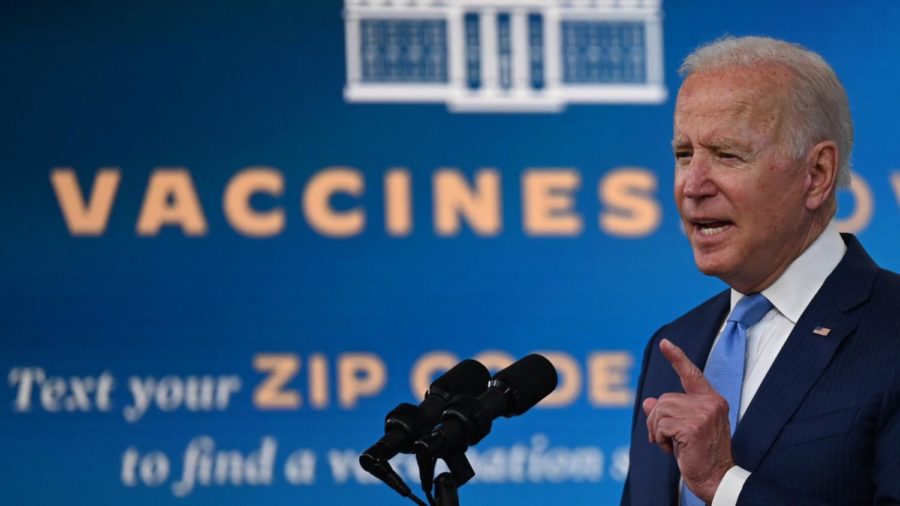Biden announces vaccine mandate for employees of large businesses
The president announces a new bill for mass-vaccination to ensure safety for Americans in the workplace
October 1, 2021
On Sept. 9, President Joe Biden announced a new vaccine mandate which would impact tens of millions of unvaccinated Americans. This new rule, which is being developed and enforced by the Department of Labor’s Occupational Safety and Health Administration (OSHA), would require employers at companies which staff more than 100 people to ensure that their employees are either fully vaccinated or getting tested for COVID-19 on a weekly basis. This mandate, in addition to requiring federal employees and contractors to get vaccinated, also affects private businesses.
This mandate is in response to the emergence of the Delta variant in the United States this past summer—a variant of the coronavirus which is more than twice as contagious as previous strains, and potentially comes with a higher rate of hospitalization for those infected. While vaccinated individuals are still able to catch this new variant and spread it to others, the Centers for Disease Control and Prevention has found that they are both much less likely to get infected than unvaccinated individuals and, if they do get infected, they are contagious for a shorter amount of time than unvaccinated individuals, making vaccination essential to effectively fighting off this new variant. However, as of Sept. 29, only 77.2% of people above the age of 18 have gotten at least one dose of a COVID-19 vaccine, with 66.8% being fully vaccinated, meaning that a significant portion of the population will be directly impacted by this new mandate.
However, despite the fact that this mandate is already facing criticism, especially by some Republican governors planning to challenge it in court, its requirements are not particularly stringent. First, the mandate does not require employees at large companies to get vaccinated, but rather offers them the option to either get vaccinated or get tested on at least a weekly basis. While this more flexible requirement may have been necessary in order to get enough approval to pass this mandate, such a built-in loophole may undermine its integrity entirely. While testing has proven effective at places such as universities in catching infections and preventing them from spreading further, it is ultimately up to the person who gets infected to follow isolation protocols—and unfortunately, especially in workplaces which offer limited days off every year, there is no guarantee that people will do so. Vaccines, on the other hand, take a more proactive approach, and do not rely on people complying with any protocol after they’ve gotten vaccinated. Additionally, this frequent testing may further stress an already stretched-thin supply of tests for the virus—making it a less than effective approach to the rising COVID-19 cases caused by the Delta variant.
Additionally, as of now, there is no centralized system for employers to report the vaccination status of their employees, and without such a system it is nearly impossible to enforce this ruling. OSHA has approximately one enforcement officer for every 70,000 workers in the United States—an unprecedented ratio, according to Case Western Reserve University professor of law and bioethics Sharona Hoffman, especially during a time where a large portion of the population is actively against getting vaccinated.


